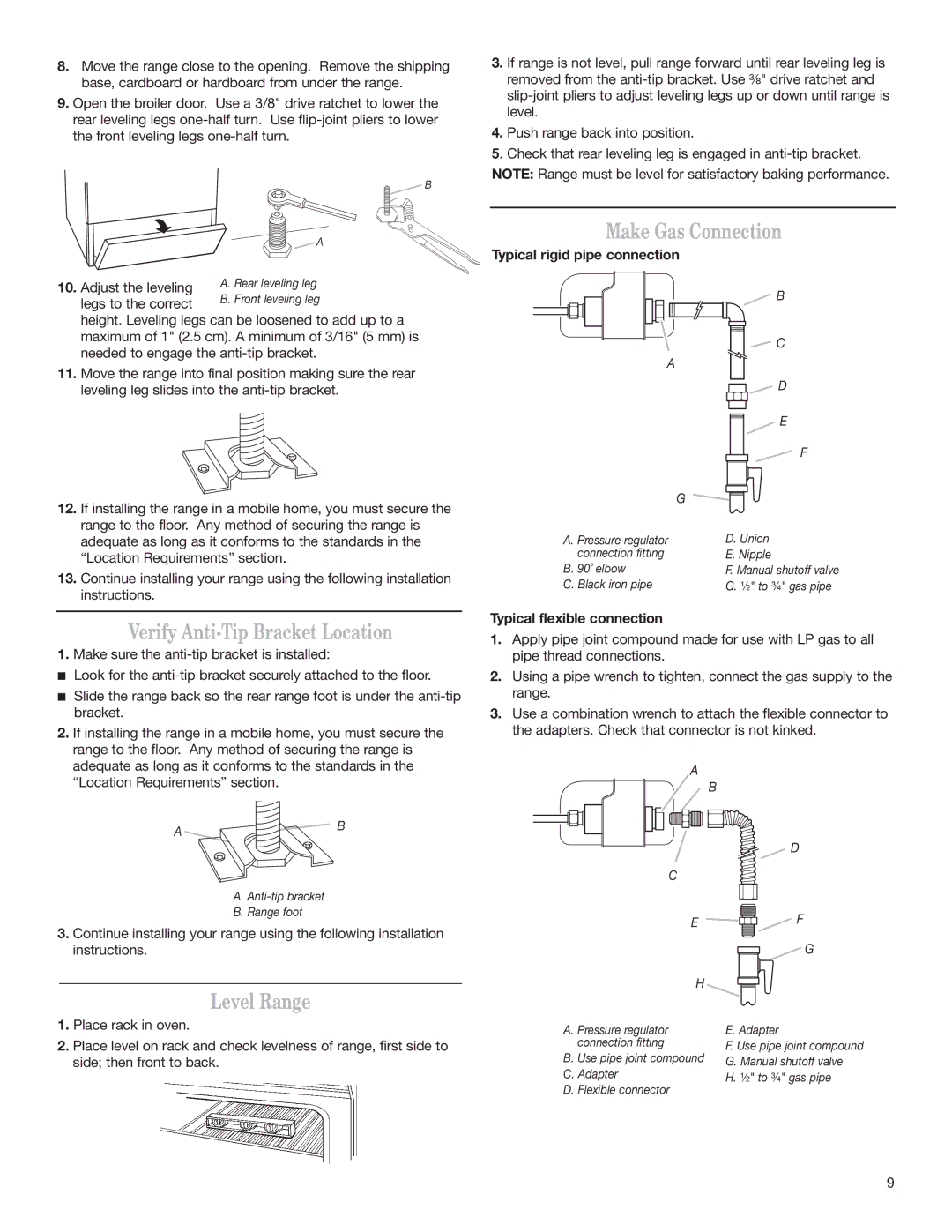
8.Move the range close to the opening. Remove the shipping base, cardboard or hardboard from under the range.
9.Open the broiler door. Use a 3/8" drive ratchet to lower the rear leveling legs
B
A
10. Adjust the leveling legs to the correct
height. Leveling legs can be loosened to add up to a maximum of 1" (2.5 cm). A minimum of 3/16" (5 mm) is needed to engage the
11.Move the range into final position making sure the rear leveling leg slides into the
12.If installing the range in a mobile home, you must secure the range to the floor. Any method of securing the range is adequate as long as it conforms to the standards in the “Location Requirements” section.
13.Continue installing your range using the following installation instructions.
Verify Anti-Tip Bracket Location
1.Make sure the
■Look for the
■Slide the range back so the rear range foot is under the
2.If installing the range in a mobile home, you must secure the range to the floor. Any method of securing the range is adequate as long as it conforms to the standards in the “Location Requirements” section.
A![]() B
B
A.
B.Range foot
3.Continue installing your range using the following installation instructions.
Level Range
1.Place rack in oven.
2.Place level on rack and check levelness of range, first side to side; then front to back.
3.If range is not level, pull range forward until rear leveling leg is removed from the
4.Push range back into position.
5. Check that rear leveling leg is engaged in
NOTE: Range must be level for satisfactory baking performance.
Make Gas Connection
Typical rigid pipe connection
| B |
| C |
A |
|
| D |
| E |
| F |
| G |
A. Pressure regulator | D. Union |
connection fitting | E. Nipple |
B. 90˚ elbow | F. Manual shutoff valve |
C. Black iron pipe | G. ¹⁄₂" to ³⁄₄" gas pipe |
Typical flexible connection
1.Apply pipe joint compound made for use with LP gas to all pipe thread connections.
2.Using a pipe wrench to tighten, connect the gas supply to the range.
3.Use a combination wrench to attach the flexible connector to the adapters. Check that connector is not kinked.
A
| B |
| D |
C |
|
E | F |
| G |
H |
|
A. Pressure regulator | E. Adapter |
connection fitting | F. Use pipe joint compound |
B. Use pipe joint compound | G. Manual shutoff valve |
C. Adapter | H. ¹⁄₂" to ³⁄₄" gas pipe |
D. Flexible connector |
|
9
